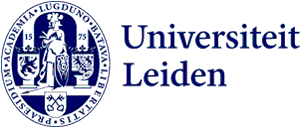Safety instructions
The university finds it important that students and staff are offered a safe environment. Read here about the safety measures in place and what you should do in case of emergencies or other incidents.
Safety measures
If you are following a programme that involves practical sessions, laboratory work, working with people or spending time outdoors, additional precautionary measures might be required. If your faculty or programme has an additional tab on this page, make sure to read it carefully.
Emergencies and incidents
Find out what to do in cases of emergencies or other incidents.
International students: be alert for telephone scams!
International students are sometimes targeted by scammers claiming to be from the IND, government agencies, banks or insurance companies. These organisations will never call you to ask for personal data. If in doubt, hang up immediately and contact the police.
Vaccinations and infection prevention
(Bio)Medical students can during their study programs come into contact with patients who are carriers of infectious diseases. It is important that you protect yourself and others to the best of your abilities.
Vaccinations and check-ups (VGM)
The main rule with regards to infection prevention is that you will only be allowed into the hospital when you can show a statement with your check-ups and vaccinations with regards to TBC, MRSA and Hepatitis B. When performing scientific research using human materials, sufficient immunisation for Hepatitis B is required. The required check-ups and vaccinations are performed by the Health, Safety and Environment Department of the LUMC and Leiden University (VGM).
VGM is located in the 'Poortgebouw' of LUMC. During the introduction period, VGM provides you with information about the Hepatitis B vaccination schedule and the first vaccination will be scheduled in your timetable. It is your responsibility to take up this offer, and to complete the vaccination scheme within your first year. Are you having trouble completing the vaccinations within a year? Contact VGM as soon as possible to discuss options for postponement. You have to pay the costs if your vaccination schedule is delayed (> 1 year).
- More information and contact details can be found in the handout Vaccinations and check-ups for LUMC students (pdf)
Needlestick injuries
Needlestick injuries is the collected name for all incidents when health care employees run the risk of being infected with Hepatitis B-virus and Hepatitis C-virus, and/or HIV-virus by having blood contact. In case of a needle stick injury you must take action immediately.
- More information: handout Needlestick injuries
Risks during your study abroad period
Many students do an internship abroad in areas with high risks for infectious diseases like hepatitis B, HIV or Methicillin-resistant staph aureus (MRSA). It is important that you prepare yourself adequately and are informed about the specific rules that are drawn up for students
- Read more in the handout Risks during a study abroad period (pdf)
- You also need the attachments Preparing a PEP consult (pdf) and Authorization for deposit PEP package (pdf)
Personal hygiene
The same rules apply to students as well as to employees who are working in the hospital or laboratory. When working in the hospital or laboratory you need to abide by the protocols in place with regards to (work) clothing, jewellery, hair, nails, piercings and so on. Please consult these before you enter the hospital.
